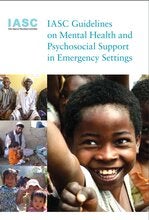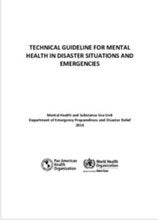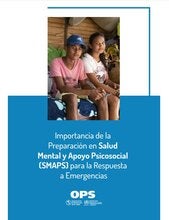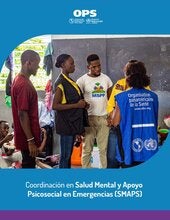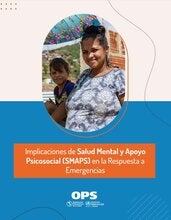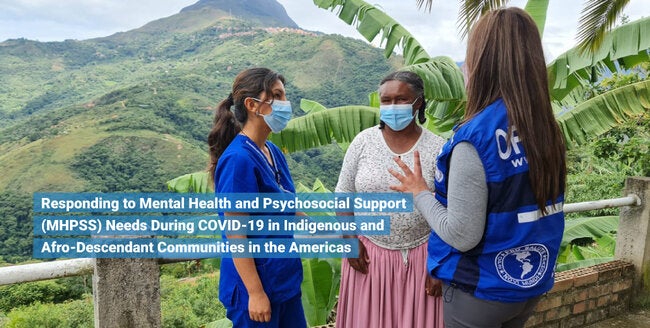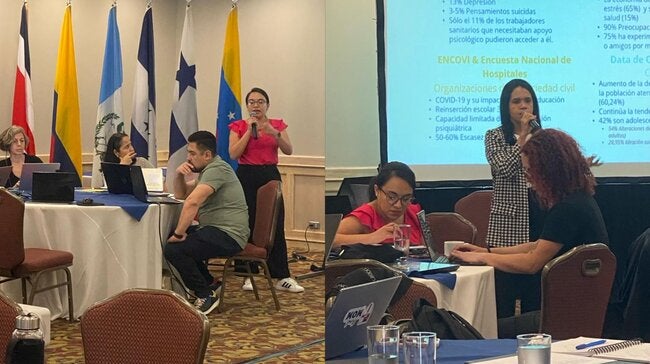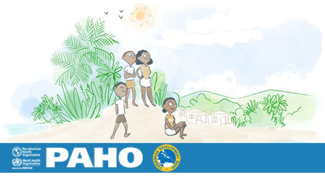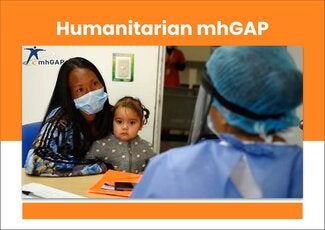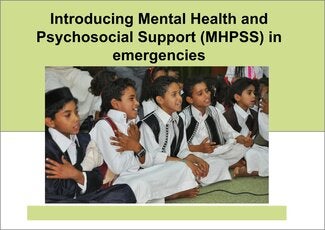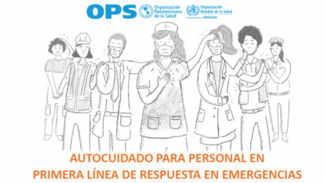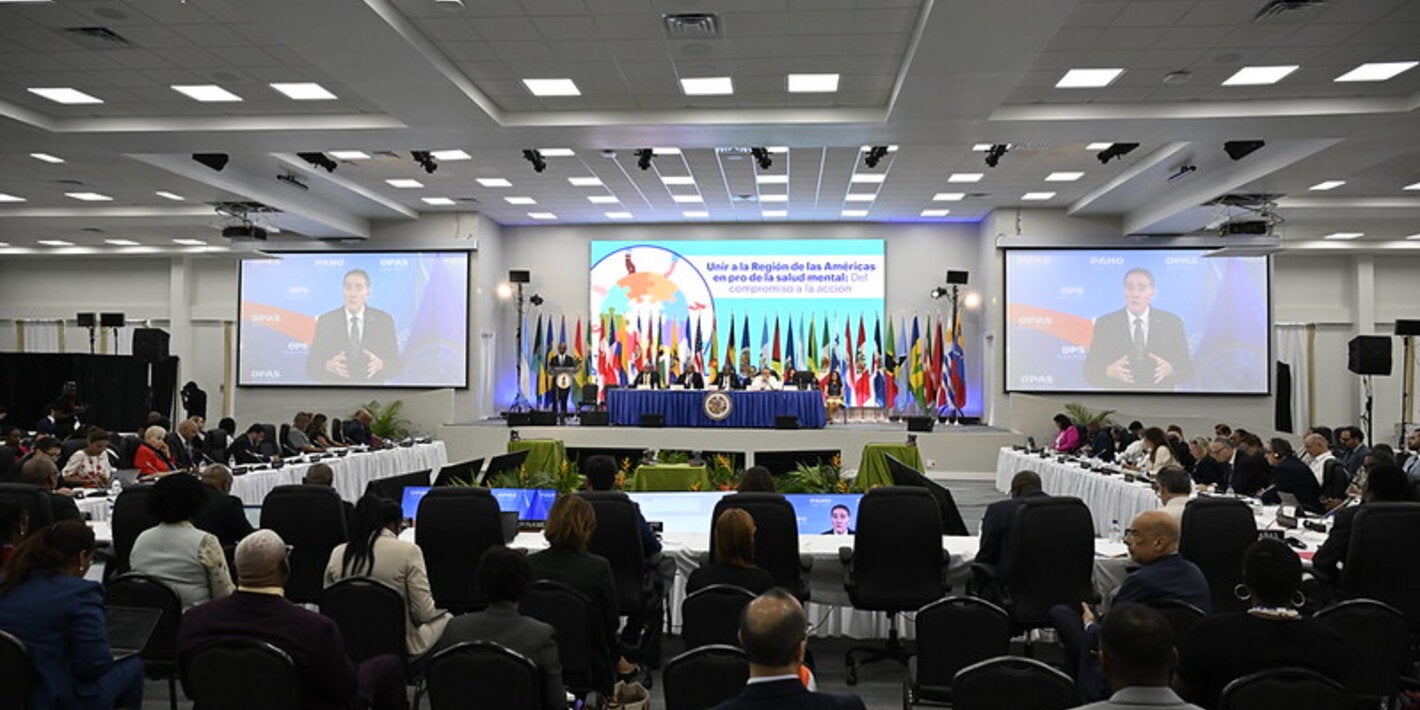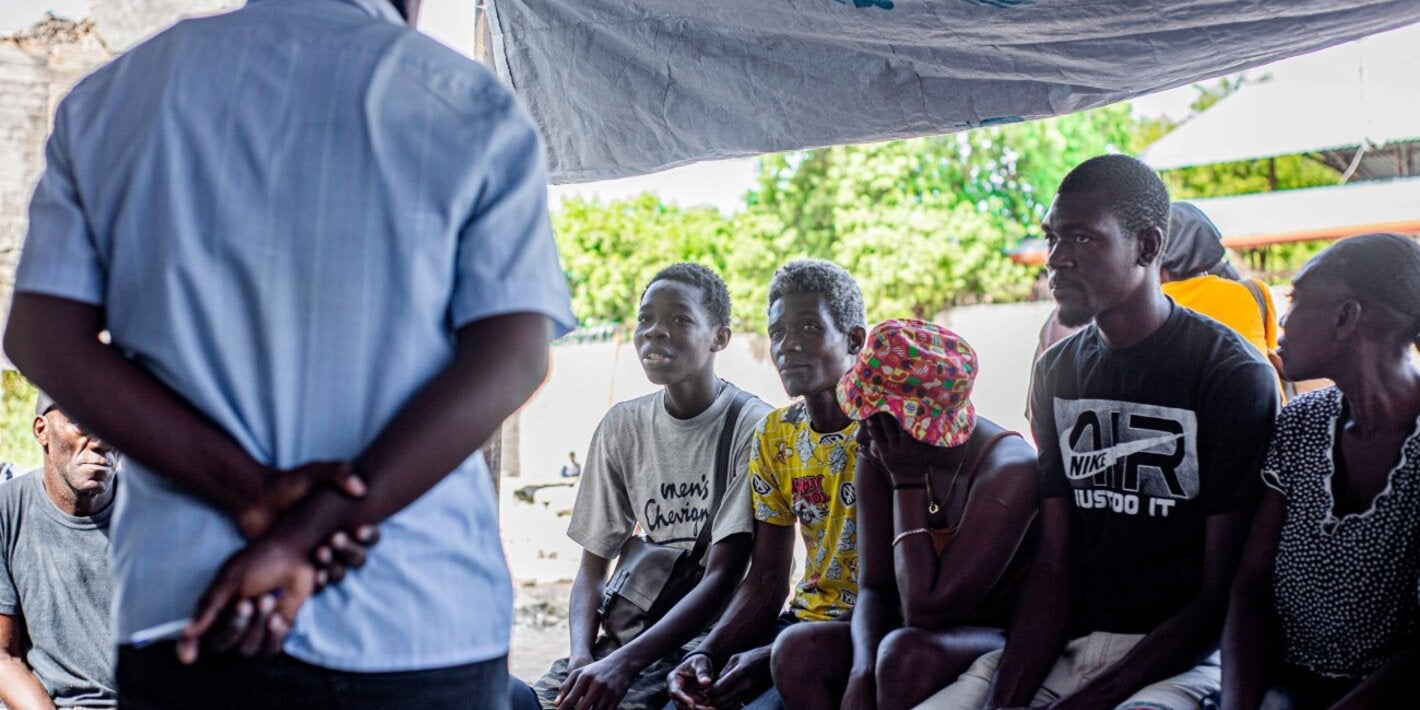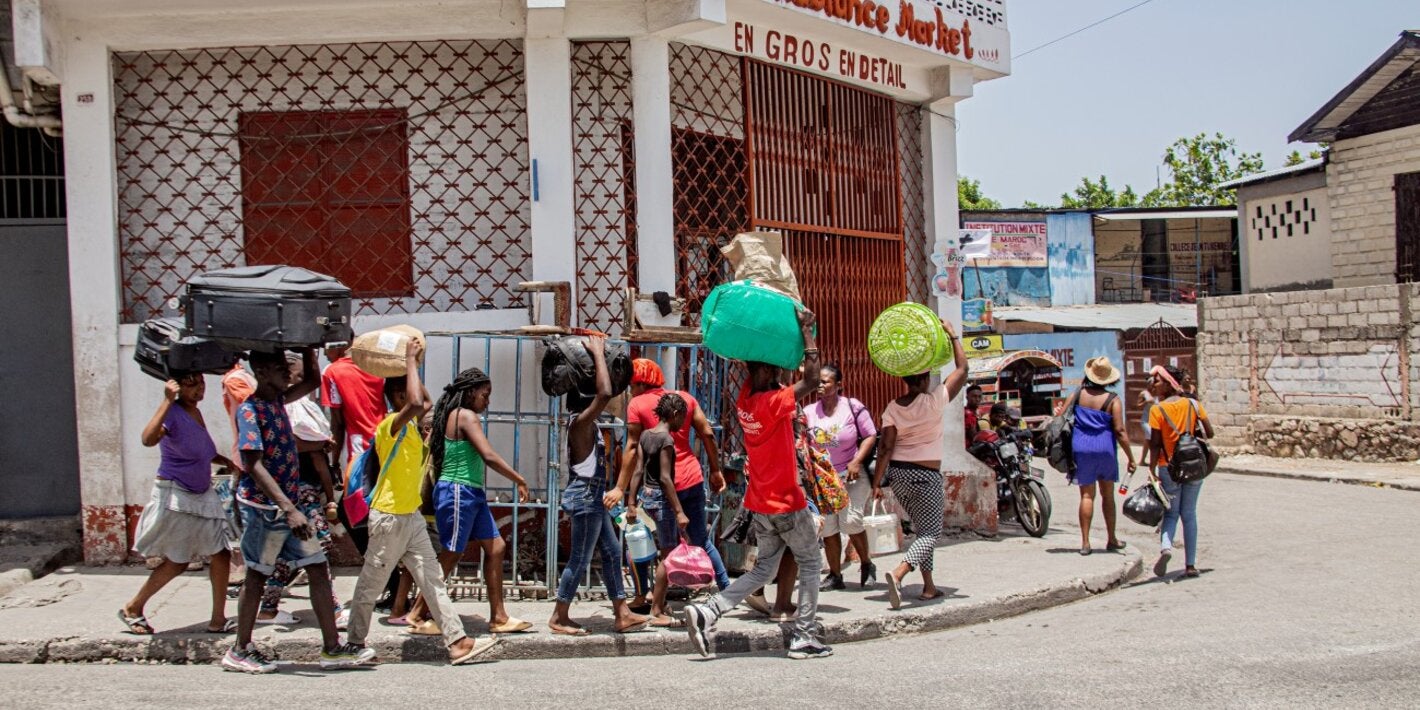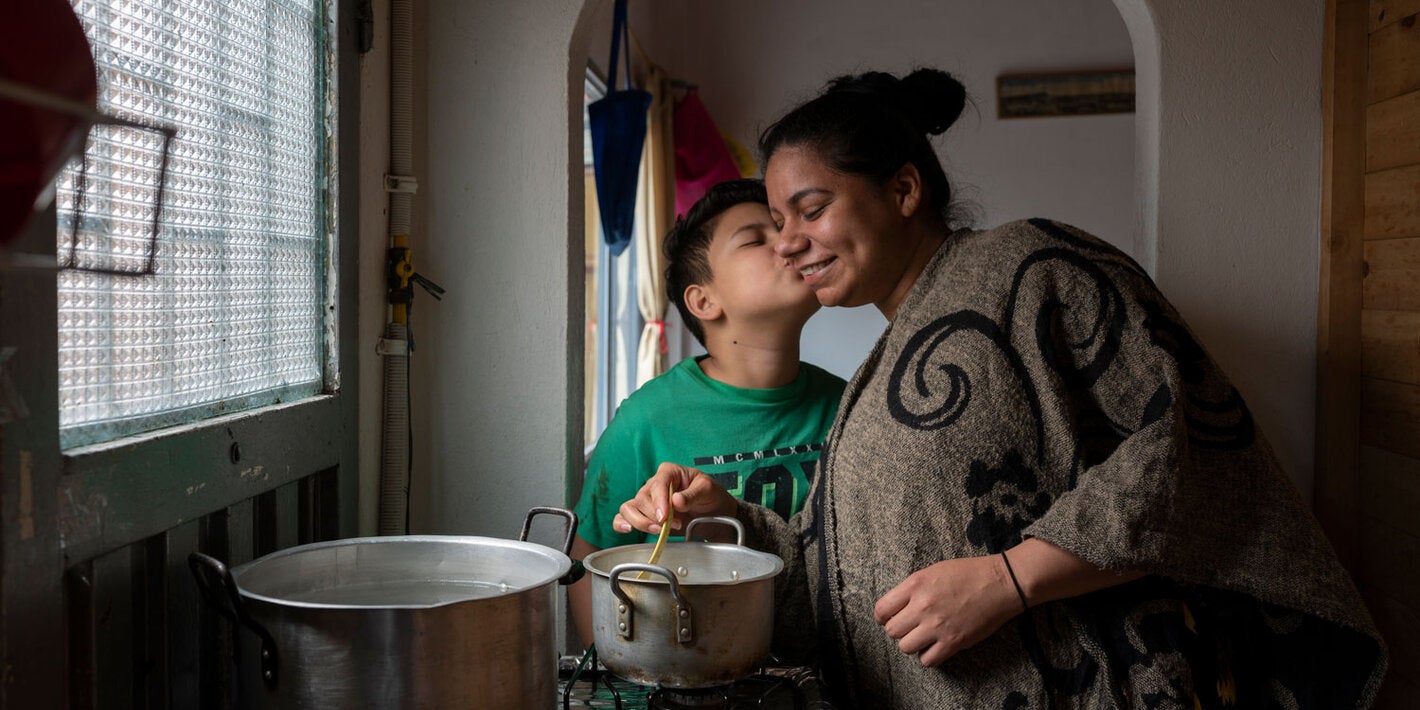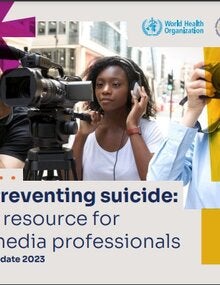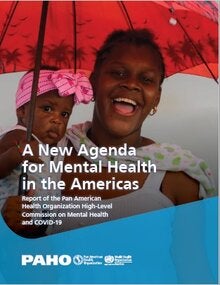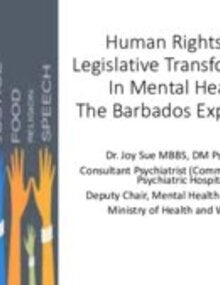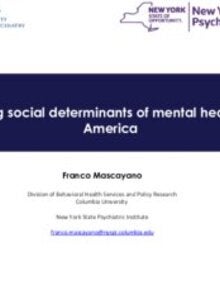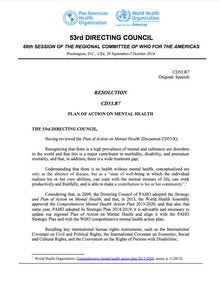Health emergencies, natural and socio-environmental disasters, armed conflicts and various migratory phenomena may cause severe suffering in affected populations. The psychological and social effects of emergencies can be severe in the short term, but they can also affect people in the long term. These effects can also threaten peace, human rights and development. Protecting and improving people's mental health and psychosocial well-being is therefore a priority in emergencies. To achieve this goal, coordinated action is needed among humanitarian assistance providers, including governmental agencies, non-governmental organizations and civil society groups involved in Mental Health and Psychosocial Support (MHPSS).
WHO's Comprehensive Mental Health Action Plan 2013-2030 calls on Member States, among other measures, to ensure the provision of mental health and psychosocial support services in emergency and disaster situations, and to encourage intersectoral initiatives for the promotion of mental health and the prevention of mental disorders, with a focus on the life course, addressing the stigma and discrimination faced by people with mental health conditions.
One of the most frequent problems we face in disasters and humanitarian emergencies is that health systems are weak and unprepared to deal with potentially traumatic events; resources are very limited, primary care has little capacity to respond, and the mental health component is not integrated into the health services network, among other things.
In such conditions, it is essential to build the response from the community itself, reinforcing first-line contact between health services and the disaster-affected population, and decentralizing specialized resources. An appropriate intervention implies strengthening the mental health component within the framework of comprehensive health services, without necessarily medicalizing human suffering or relying on specialization. Disasters can become an opportunity to strengthen health systems.
PAHO provides technical advice on mental health and psychosocial support in emergencies. To this end, it determines the characteristics of mental health systems, conducts assessments of the MHPSS situation and identifies existing human resources (non-specialized and specialized personnel, community agents, among others), as well as their competences.
In addition, PAHO identifies local MHPSS regulatory institutions and convenes MHPSS stakeholders to guarantee a coordinated response and involvement of the affected populations.
Likewise, as part of the emergency response plans, PAHO ensures the delivery of Psychological First Aid (PFA) and other psychosocial and health interventions to the affected population and the development of proposals to implement and/or continue with mental health and psychosocial care interventions during and after the emergency.
Finally, PAHO analyses the impact on human health resources and other response teams and proposes alternatives and plans for their management and self-care.
The Mental Health and Psychosocial Support Minimum Service Package (MHPSS - MSP)
The MHPSS MSP supports humanitarian actors in coordinating and collaborating, planning and making decisions, and implementing and allocating. The MSP builds on existing MHPSS standards and tools to create a single, easy-to-follow intersectoral package.



